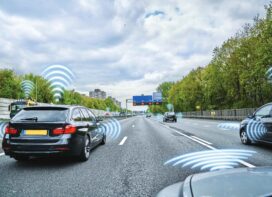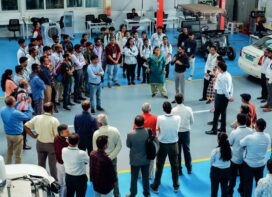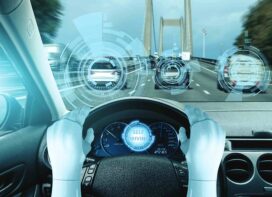“A lot is spoken about electric cars which probably will be the laggard in the EV movement, but fortunately or unfortunately is the point of most discussions. It is the two-wheeler and threewheeler segment which is slowly but strongly moving towards e-Mobility”, added Lewis. Cities like Delhi which have a huge population of e-rickshaws and no one even noticed. While these e-rickshaws are already on the Indian roads, they are using Indian jugaad for the charging which is a safety hazard and not economic. Magenta is soon launching their two-wheeler Bike Port and threewheeler charging port under the ChargeIn brand, which will address some of the issues they have seen with the charging of these vehicles.
Car manufacturers are waiting for charging infra and vice versa. The grid lock must be broken and that is exactly what Magenta Power has been doing. They are investing in setting up the infrastructure and know business will follow. They are already seeing that in the charging stations that they are operating.
“As far as the EV ecosystem is concerned, let me share my view of how things are going to pan out in the next couple of years. 2018 and 2019 will be spent on discussions and standardisation. We will also see government bodies pushing for EV adoption both in purchase of vehicles and setting up public charging stations. By that time, the take off in the 2W and 3W segment will drive the EV market. Come 2020, the EV infrastructure will move into the private space with more and more companies getting interested and investing in this space. 2020 is also the time when manufacturers like Maruti Suzuki will launch their EVs and will possibly change the market dynamics. By 2020, car manufacturers will be forced by market dynamic to offer electric versions of their top end selling vehicles”, Lewis said.
By 2022 the vehicle buying decisions of potential customers will have to consider electric options. This will also be interesting times when vehicle manufactures will be competing with their electric vehicles. By 2025, the vehicle purchase decision will truly be favoured towards electric and fossil fuel options which be an option not the default.
Demonstrating its commitment to clean energy and sustainable transportation, the Indian government’s premier policy thinktank, NITI Aayog recently installed an ABB Terra 53 fast charging station for electric vehicles at the organization’s office in the New Delhi.
The installation by ABB supports recent proposals by the Ministry of Highways and Transportation and NITI Aayog, which include a pilot project in electric vehicle (EV) charging infrastructure in New Delhi.
“We will continue to expand our charging station infrastructure in the country through strategic and technological collaborations with partners including auto and charger OEMs.”
 ABB’s 50kW fast charging station can provide a full charge to an electric vehicle in only 30 minutes. “ABB’s 50kW fast charging station can provide a full charge to an electric vehicle in only 30 minutes. “We are honoured to support Indian Government’s thought leadership and drive to systematically transform the nation’s transportation base to electric vehicles. ABB reinforces its commitment to the nation’s future of renewable power generation and clean electric transportation with our global technologies made in India, stated Sanjeev Sharma, Managing Director of ABB India in a company announcement. “We will continue to deploy and leverage the next level of global, open standard technology to provide the best-in-class reliable and cost effective EV charging experience for Indian citizens living in smart cities. We believe that smart cities are made of smart elements and ABB EV Charging technology is one such important element,” he added.
ABB’s 50kW fast charging station can provide a full charge to an electric vehicle in only 30 minutes. “ABB’s 50kW fast charging station can provide a full charge to an electric vehicle in only 30 minutes. “We are honoured to support Indian Government’s thought leadership and drive to systematically transform the nation’s transportation base to electric vehicles. ABB reinforces its commitment to the nation’s future of renewable power generation and clean electric transportation with our global technologies made in India, stated Sanjeev Sharma, Managing Director of ABB India in a company announcement. “We will continue to deploy and leverage the next level of global, open standard technology to provide the best-in-class reliable and cost effective EV charging experience for Indian citizens living in smart cities. We believe that smart cities are made of smart elements and ABB EV Charging technology is one such important element,” he added.
ABB has more than 6,000 units installed across more than 55 countries. The Terra 53 is based on international charging standards for EVs. The charger converts alternating current (AC) from the grid to the direct current (DC) used by EV batteries. But it can also work with EVs that use AC charging. The station’s robust hardware and compliance with global electromagnetic compatibility (EMC ) testing standards ensures safe operation in all-weather conditions.
The Terra 53 can take advantage of the ABB Ability™ Connected Services digital networking suite portfolio to link the charging station to payment platforms and smart grid systems. The cloud-based ABB Ability connection also makes possible smart trip planning for travelers by indicating where the next recharge stop will be. ABB Ability™, which is based on Microsoft’s Azure cloud computing platform, can also enable the operator to perform several key functions, including remote monitoring and configuring; resolution of driver issues; servicing of equipment with minimal downtime; and the flexibility to connect to any charging network, back-office, payment or energy management solution.
Way Forward
India’s automotive industry is undoubtedly headed for an inflection point, where some or all the above trends may converge. What’s crucial along the way is to keep the industry and its customers at the core of all relevant smart mobility plans, to ensure that India stays on the right track to becoming an EV hub.
 TrafficInfraTech Magazine Linking People Places & Progress
TrafficInfraTech Magazine Linking People Places & Progress


